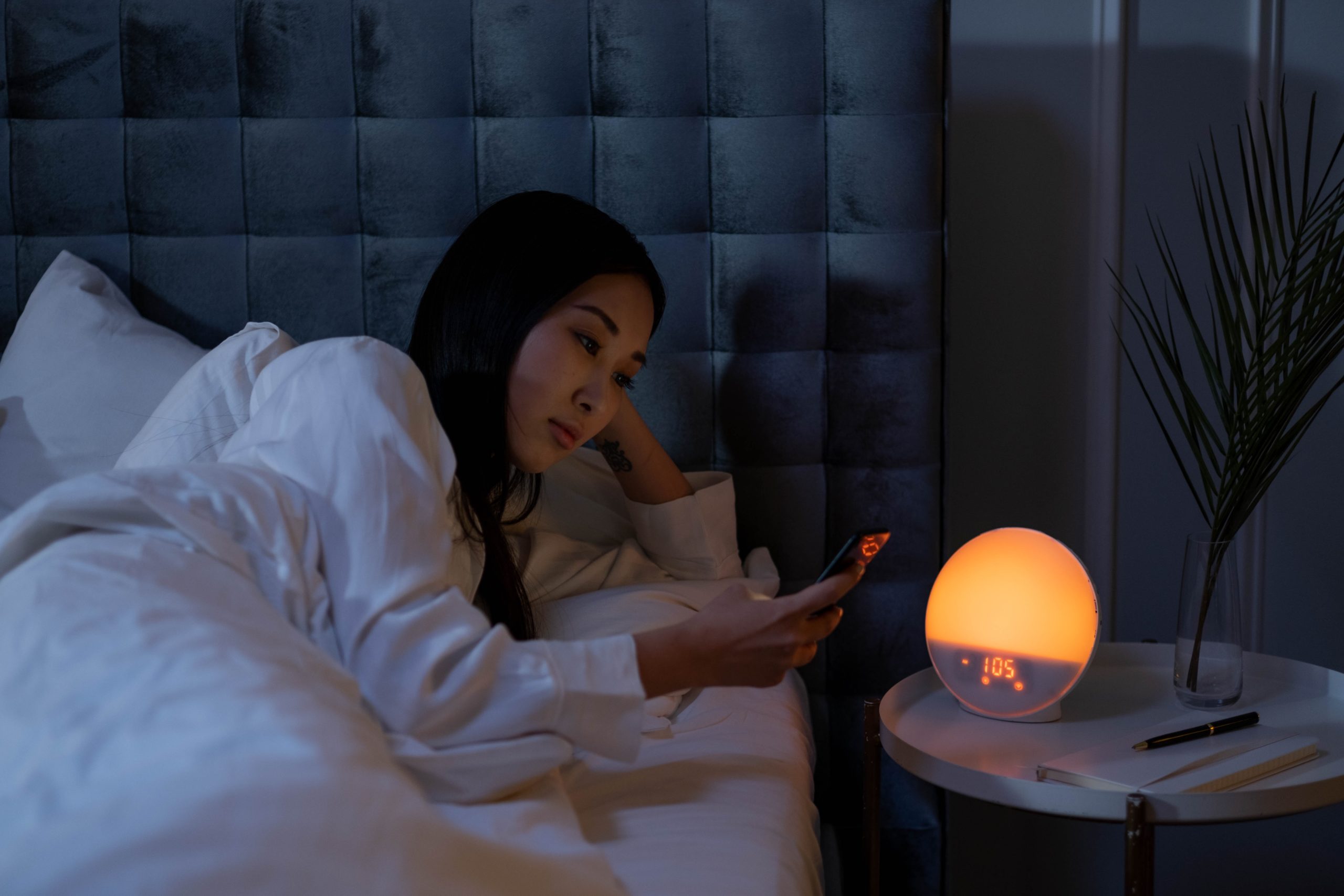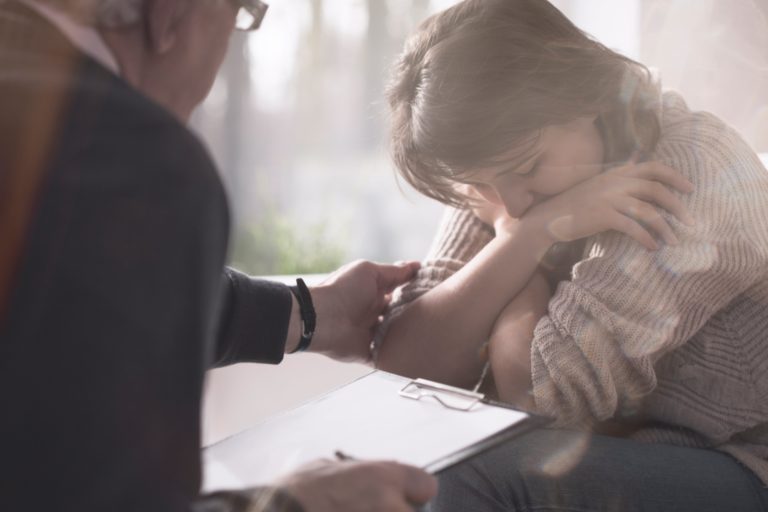Sleep is important for both your body and your mind. When you don’t get an appropriate amount of quality sleep, you put yourself at risk for a variety of physical and mental health concerns, including sleep deprivation psychosis.
According to the Cleveland Clinic, insufficient sleep has been linked to memory problems, high blood pressure, heart attack, diminished sex drive, obesity, depression, and impaired functioning of the immune system.
Poor sleep habits can also lead to irritability, substandard performance at work or in school, and a diminished ability to manage stress.
In extreme circumstances, sleeplessness can also cause you to develop a debilitating condition known as sleep deprivation psychosis.
What Is Sleep Deprivation Psychosis?
Psychosis is a clinical term that describes a detachment from reality. People who develop psychosis may be unable to accurately perceive their environment or effectively interact with others.
Psychosis can result from mental health disorders such as schizophrenia, schizoaffective disorder, and bipolar disorder. It can also be caused by an excessive lack of sleep.
You can begin to experience some symptoms of sleep deprivation psychosis once you’ve been awake for 24 hours. Early effects of sleep deprivation can include irritability, anxiety, and a sense of being disconnected from your thoughts and feelings.
After 48 hours without sleep, you will likely experience several severe symptoms, including hallucinations and an inability to think clearly.
The longer you are deprived of sleep, the greater your risk becomes for severe, long-lasting effects of sleep deprivation psychosis.
Possible Causes of Sleep Deprivation
There are several reasons why you might endure extended periods of sleeplessness. Certain lifestyle choices, health conditions, and external factors can cause sleep deprivation.
- Lifestyle choices: Pulling an all-nighter to study for an exam or working through the night to complete a project at work can lead to early signs of sleep deprivation psychosis. Some types of drug abuse, such as the habitual use of methamphetamine or other stimulants, can also keep you awake for several days at a time.
- Health conditions: Insomnia can be a symptom of several mental health disorders. This includes depressive disorders, bipolar disorder, attention-deficit/hyperactivity disorder (ADHD), and anxiety disorders. People who are living with chronic pain may also find it difficult or impossible to sleep.
- External factors: Being in a noisy, hot, cold, or otherwise uncomfortable environment can prevent you from sleeping. Also, some prisoners have been subjected to sleep deprivation as a punishment or an interrogation technique. To underscore the brutality of this practice, the intentional deprivation of sleep has been identified by many experts as a form of torture.
Regardless of what has caused you to become sleep deprived, the symptoms and effects of this experience can range from temporary distress to long-term suffering.
What Are the Signs & Symptoms of Sleep Deprivation Psychosis?
As noted earlier on this page, you can begin to demonstrate early signs of sleep deprivation psychosis once you’ve gone about a day without sleeping. Symptoms are likely to increase and become more intense with each passing day.
A 2018 study in the journal Frontiers in Psychiatry identified the following signs and symptoms of sleep deprivation psychosis:
- Anxiety, depression, and other mood changes
- Perceptual distortions such as blurred vision and increased sensitivity to colors and sounds
- Temporal distortion (inability to properly track the passage of time)
- Disordered thinking, which can include problems forming logical thought patterns or maintaining a clear train of thought
- Inability to speak in a manner that is logical and understandable
- Auditory and visual hallucinations (hearing or seeing things that aren’t there)
- Delusions (believing things that clearly have no basis in reality)
- Depersonalization (feeling detached from your thoughts and emotions)
- Derealization (feeling detached from your surroundings)
If you have been kept awake for 72 hours or longer, you are likely to experience all the sleep deprivation psychosis symptoms listed above.
The authors of the 2018 study reported that some symptoms will usually be resolved once you’ve been able to sleep. However, others may persist long after the period of sleep deprivation has ended.
How Is Sleep Deprivation Psychosis Treated?
The optimal treatment for sleep deprivation psychosis can depend on a variety of personal factors. Two key areas of focus are the types of symptoms you’ve been experiencing and the underlying cause of your sleep deprivation.
For example, if your sleep deprivation is the result of substance abuse or a mental health condition, you may need medical attention, therapeutic services, or both. Anxiety, depression, bipolar disorder, and other psychological causes of sleep deprivation may be treated with both medication and therapy.
The medications that are incorporated into treatment for these concerns may improve your mood, stabilize your emotions, and ease certain other symptoms. If you’ve been struggling with addiction, medication may help you complete the withdrawal process with minimal discomfort.
The therapeutic part of inpatient treatment in Nashville can help you make essential behavioral and lifestyle changes. During therapy, you may develop skills that will help you manage your symptoms. Additionally, it will help you respond to triggers in a healthier manner, and resist relapse.
Therapy sessions are also safe spaces where you can share your hopes and fears. Therapy also helps process successes and setbacks, and receive focused guidance from a skilled professional.
Begin Treatment for Sleep Deprivation Psychosis in Nashville, TN
Arbor Wellness offers a full continuum of care for adults whose lives have been affected by sleep deprivation psychosis and other mental health concerns. When you choose our treatment center in Nashville, Tennessee, you can rest assured that you will receive personalized services from a team of skilled professionals. Visit our admissions page or contact us directly to learn more.



















Pingback: From Stress to Success: How Professionals Can Use Sleep to Improve All Areas of Life - creativejii.com
Pingback: What are the consequences of delayed crying in newborns? - The road to online assets
Pingback: Understanding Sleep OCD: Symptoms and Treatment - Online Financial Management Academy